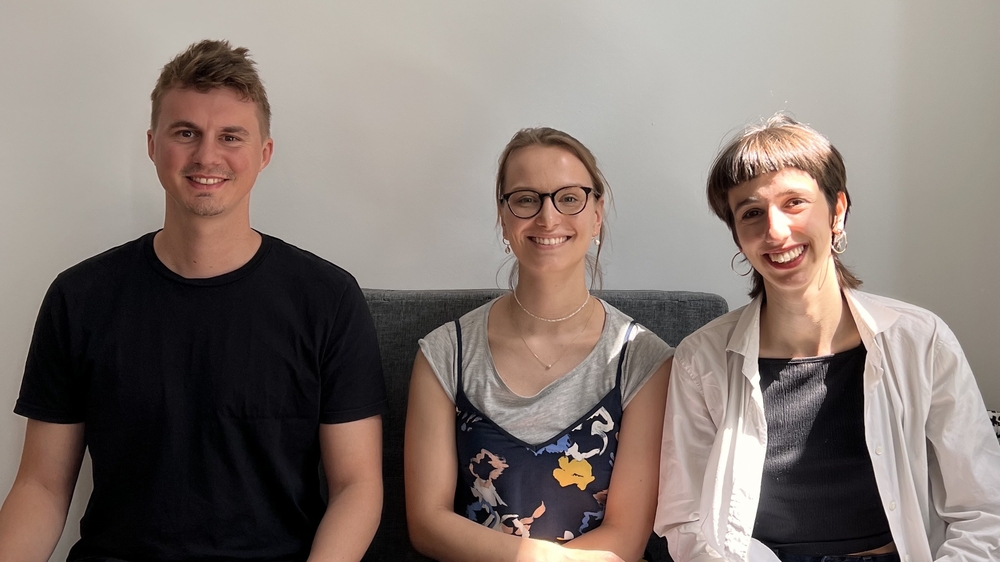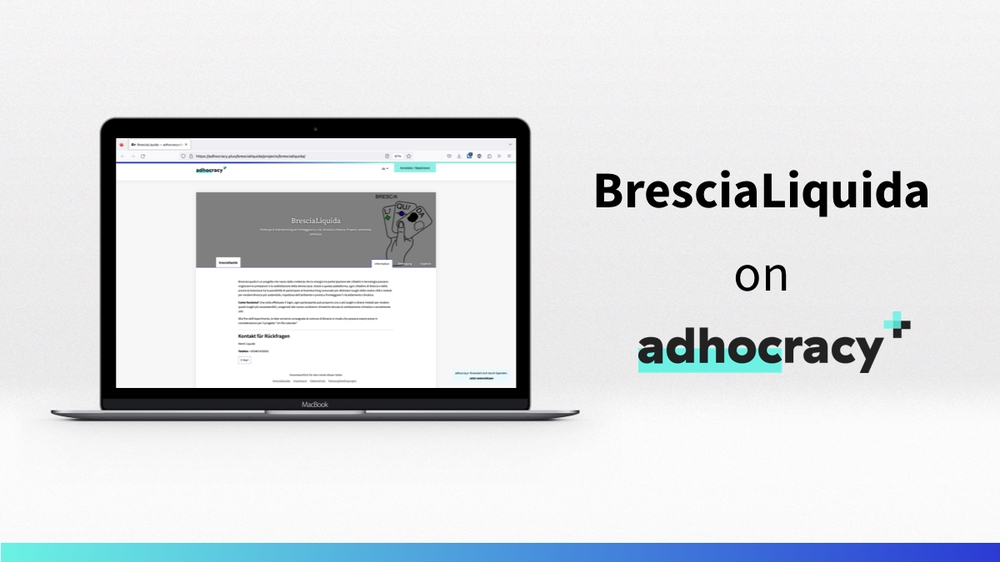A Master's student in European Studies at the University of Strasbourg and Olomouc conducted an experiment titled “BresciaLiquida” for her Master's thesis in spring 2023 in Brescia. This article was contributed by Francesca Benedetta Aletto, the author of the study.
July 11, 2023
Master Thesis “BresciaLiquida” uses adhocracy+ for participation project

The thesis explores the realm of participatory democracy and examines the effectiveness of face-to-face interactions and online platforms by comparing Brescia's municipal participation projects, "Un filo naturale" and "BresciaLiquida" – namely, the online version of this project. By analyzing the experiences and outcomes of these initiatives, the aim is to shed light on the potential benefits and drawbacks of integrating technology-driven platforms into the democratic process. Additionally, the study explores the possibilities offered by adhocracy+'s suite of online services to further enhance participation and engagement.
The primary objective of the study is not only to involve a wider spectrum of citizens in the "Un filo naturale" project but also to address broader environmental concerns and the pressing issue of pollution in Brescia. By embracing technology as a catalyst for change, the aspiration is to empower individuals to actively shape and contribute to the improvement of their communities. Through this research, the goal is to highlight the potential of ICTs in fostering democratic practices, thereby inspiring a more inclusive and participatory form of governance.
For ethical reasons, the study deliberately chose to use the platform adhocracy+, provided by Liquid Democracy e.V., as a tool for the research. Thanks to its transparency, open-code, and free availability policy, this study was conducted without economic support from third parties. This greatly facilitated the study's contribution to the limited academic theory on participation and technological tools. The project can be found here.

The project was structured in different phases, beginning with a questionnaire, followed by the utilization of adhocracy+ and another questionnaire. Furthermore, participants who desired had the opportunity to take part in subsequent interviews to qualitatively assess their experiences.
Five assumptions guided the investigation, including the availability of more participatory tools through “BresciaLiquida”, greater participation on the online platform compared to face-to-face initiatives, and the perception of technological tools as positive for democracy.
Key results of the study:
- the online initiative attracted more people than the municipal initiative
- the most significant differences between the two initiatives are found regarding the age and civic engagement of the participants
- participants using adhocracy+ were predominantly young people that exhibited an interest in climate change
- concerns expressed by the participants are transparency issues and lack of trust in the institution
Aligned with previous studies, both initiatives faced struggles with low participation rates and complete representativeness, albeit in different ways. The online experiment reached a larger number of people. However, when considering age and civic engagement, distinct patterns emerged. Unlike the face-to-face initiative, participants using adhocracy+ were predominantly young people who were not associated with any specific organization but exhibited an interest in climate change. At the end of the experiment, the data revealed that many individuals still believed in the potential of online platforms to enhance democracy. However, their participation was hindered primarily by a general distrust of government in any form. Other factors such as concerns about privacy and lack of motivation were also discussed in subsequent sections of the study. Additionally, factors such as shyness or lack of time often hindered their participation, leading them to feel useless or incapable of providing meaningful help. This lack of ideas could be attributed to factors such as low self-esteem, lack of confidence in their knowledge, or fear of judgment in a community where critical evaluation and collaboration are encouraged. This differs from the routine use of social media platforms, where mental abilities are not typically judged. Lastly, the passive nature of education in schools was identified as a contributing factor to the lack of ideas. In Italy, education primarily involves teachers imparting knowledge to students, who are expected to memorize and repeat the information. Developing a critical mindset is not a common practice in schools, which may discourage individuals from generating ideas.
Overall, interviewees expressed appreciation for the online process and believed that democracy could benefit from the integration of online platforms in decision-making. The reluctance for using Adhocracy was due to the demanding questionnaire participants had already completed. Despite that, participants who could speak English found the platform easy to use and intuitive. The same could be said for the initialization of the online space and the familiarization with adhocracy+'s tools and features by the author of the study. Indeed, once access to the space and the guide was received, setting up the initiative was very easy and fast. This streamlined the entire process, which was entirely led by Francesca Benedetta Aletto. Special thanks go to Silvia Parolini, who designed the logo
